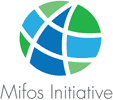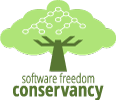Containers. Continuous Delivery. Monitoring. These are just a few words that conjure up the world of distributed computing. The wall between software development and deployment is now all but dust, and there are completely new paradigms and a slew of tooling options. Come hear about some cool new achievements that have been tackled in the last year and that you can apply to your own work.
9:00am - 5:00pm Monday, July 16 & Tuesday, July 17
Ryan Schneider demonstrates how to build out a distributed system from ideation to production. You'll learn the essentials needed to develop a highly available and fault-tolerant architecture and gain insight into the practicalities of transitioning to this type of application architecture the right way.
Read more.
1:30pm–5:00pm Monday, July 16, 2018
Level: Beginner
As more enterprises adopt microservices, using distributed tracing to monitor and provide a complete picture of a software system is an increasingly necessary skill for developers and DevOps engineers. Priyanka Sharma, Ted Young, and Alex Masluk offer an introduction to the OpenTracing API, which allows engineers to understand how the components in their systems are interacting end to end.
Read more.
1:30pm–5:00pm Monday, July 16, 2018
Level: Intermediate
Eric Stoekl and Jonas Rosland walk you through building a serverless application. You'll start off by deploying OpenFaaS to your laptop with Docker and then learn how to build, deploy, and invoke serverless functions in Python. You'll finish by building a GitHub bot that puts all your new knowledge together into a single application.
Read more.
9:00am–12:30pm Tuesday, July 17, 2018
Level: Beginner
Do you have a real understanding of the performance of your new Kubernetes service, or do you just know what the average user is seeing? Fred Moyer explains how to get a comprehensive understanding of your Kubernetes infrastructure with a little math and an Istio service mesh implementation for your container-based infrastructure.
Read more.
1:30pm–5:00pm Tuesday, July 17, 2018
Level: Intermediate
Docker and rkt have made it easy to package and ship applications, but running them at scale remains a challenge. Anubhav Mishra leads a hands-on dive into Nomad, a single binary cluster scheduler that can be used to build a multiregion, self-healing production environment that runs a diverse set of workloads, including noncontainerized applications.
Read more.
11:00am–11:40am Wednesday, July 18, 2018
Level: Intermediate
Though thousands of distributed systems are activated every day, designing and building them is more black art than science. However, the study of such systems reveals a collection of repeated patterns and practices that can be applied to quickly construct reliable systems. Brendan Burns describes these patterns and explains how they can be used with the Kubernetes container orchestrator.
Read more.
11:50am–12:30pm Wednesday, July 18, 2018
Level: Intermediate
Ben Sigelman explains how service mesh technology can be used in conjunction with distributed tracing to provide a complete picture of a software system—a topic that is very relevant for developers and DevOps engineers navigating the explosion of microservices in their software systems.
Read more.
1:45pm–2:25pm Wednesday, July 18, 2018
Level: Beginner
Elsie Phillips and Paul Burt share key takeaways from the NIST container security standard report, including the importance of using container-specific host OSes and using tooling specific to containers to monitor for vulnerabilities, and offer suggestions for how to implement them within an organization.
Read more.
2:35pm–3:15pm Wednesday, July 18, 2018
Level: Intermediate
Distributed systems are becoming more prevalent, since they can provide lower latency and greater reliability than single machines. Laura Hampton discusses the difficulties in replicating data across multiple machines, explains how the Raft algorithm, used in Kubernetes and Docker Swarm, provides reasonable guarantees, and shares proposed solutions to the consensus problem (and why they work).
Read more.
4:15pm–4:55pm Wednesday, July 18, 2018
Level: Beginner
Enterprise needs for observability are advancing rapidly as they adopt microservices. Priyanka Sharma explores the various projects leading the way (including Prometheus, OpenTracing, and Envoy), explains how they fit together, and offers a view of the future ecosystem.
Read more.
5:05pm–5:45pm Wednesday, July 18, 2018
Level: Beginner
Bryan Liles offers an overview of ksonnet, an open source framework that enables developers to create and edit their "configuration as code," no matter the scale of their Kubernetes apps. You'll learn simple commands to take advantage of reusable components, decouple parameters from resources, and deploy to multiple environments.
Read more.
11:00am–11:40am Thursday, July 19, 2018
Level: Intermediate
Alena Hall walks you through setting up and building a distributed streaming architecture on Azure using open source frameworks like Apache Kafka and Spark Streaming. You'll use these distributed systems to process data coming from multiple sources in real time and perform machine learning tasks.
Read more.
11:50am–12:30pm Thursday, July 19, 2018
Level: Beginner
Google has been doing microservices observability for more than a decade. Jaana Burcu Dogan outlines key approaches in instrumenting Google's services, shares best practices and lessons learned related to patterns, UX, performance, and security, and discusses the company's recent work to open-source its internal stack.
Read more.
1:45pm–2:25pm Thursday, July 19, 2018
Level: Beginner
Istio's service mesh provides a common networking, security, policy, and telemetry substrate for services. Daniel Berg explains how the service mesh can help with the transition to microservices, empower operations teams, and enable the adoption of security best practices.
Read more.
2:35pm–3:15pm Thursday, July 19, 2018
Level: Intermediate
Idit Levine explores common debugging techniques and offers an overview of Squash, a new tool and methodology that enables you to debug microservices running on Kubernetes from your favorite IDE.
Read more.
4:15pm–4:55pm Thursday, July 19, 2018
Level: Beginner
Are you trying to move beyond REST for your internal services? Ryan Michela offers an overview of binary-based protocol gRPC and explains how its built-in features allow you to build reactive services that can support RxJava and handle back pressure natively over the wire.
Read more.
5:05pm–5:45pm Thursday, July 19, 2018
Level: Advanced
We at NGINX know how to connect to your application. We recently developed new software to run it. Unit launches the applications in multiple languages - PHP, Python, Ruby, Go, Perl - and configures them all dynamically without reloads. Hear about the use cases and see how you can use Unit in your environment today.
Read more.
 Ryan Schneider (VMware)
Ryan Schneider (VMware)
 Fred Moyer (Zendesk)
Fred Moyer (Zendesk)
 Anubhav Mishra (HashiCorp)
Anubhav Mishra (HashiCorp)
 Brendan Burns (Microsoft)
Brendan Burns (Microsoft)
 Ben Sigelman (LightStep)
Ben Sigelman (LightStep)
 Laura Hampton (Independent)
Laura Hampton (Independent)
 Priyanka Sharma (GitLab)
Priyanka Sharma (GitLab)
 Bryan Liles (Heptio)
Bryan Liles (Heptio)
 Lena Hall (Microsoft)
Lena Hall (Microsoft)
 Jaana B. Dogan (Google)
Jaana B. Dogan (Google)
 Daniel Berg (IBM)
Daniel Berg (IBM)
 Idit Levine (solo.io)
Idit Levine (solo.io)
 Ryan Michela (Salesforce)
Ryan Michela (Salesforce)
 Nick Shadrin (NGINX at F5)
Nick Shadrin (NGINX at F5)




























